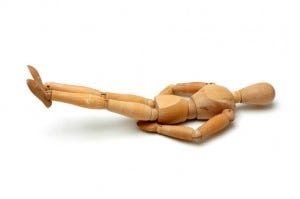Leg lifts and hernias
Dunc Wilson is a hernia survivor and New Zealand adventurer - follow his Facebook page here
Leg lifts and hernias - I have recently been diagnosed with a right-side inguinal hernia.
The cause? Leg lifts.
Leg lifts and hernias
Before we go any further, I need to say this: If you think you're suffering from any type of hernia, go get yourself checked out by a doctor. Your doc is the only person who can assess you and get you the treatment you need to put you right. If you need any!
Besides, too much self-diagnosis on the internet, especially when it comes to hernias, can be quite traumatic and lead to you viewing some quite disturbing things. Trust me on this one!
Anyway, you're probably reading this because you want to know whether performing leg lifts, leg raises or leg lowers as part of your exercise routine can cause a hernia.
The answer is yes they can.
Find out more and order your copy of The Big Loop here
I know this because that's how I got my very own inguinal hernia. An inguinal hernia is where a moment of immense pressure inside the stomach causes the thin, weak stomach muscle lining to tear. This part of the body's function is to hold our insides in.
It is quite possible that a breathing error during just one leg raise (or lowering) caused the hernia, which is what makes correct form and breathing during any exercise so important. Don't be fooled that hernias are just for older, overweight or unfit people - they can be accidentally achieved at any age.
If you suspect you have given yourself a hernia during exercise the important thing is not to panic. Hernias are common, particularly among men, and inguinal hernias are the commonest of all the male hernias. Depending on what your doctor is like, a trip regarding a hernia can be the calmest trip to the doctor you ever make.
There is a small risk of a hernia becoming strangulated, severe pain in the area of the hernia will indicate this, but other than that, "people can live for years with them" I was told recently at a hospital. As such, practitioners remain calm about a hernia and take time to assess them properly when deciding on required treatment.
I have found my doctor one of the more calming influences on me since being diagnosed with my inguinal hernia, I hope you experience the same.
If you are embarking on a program of exercise, I have a couple of tips that could hopefully steer you clear of hernia-land.
Firstly, when participating in any exercise, it is important to maintain breathing concentration at all times. That is to remain 100% focused on what your body is doing regarding air in and out-take. It sounds obvious, but a moment's concentration slip and you can potentially damage yourself.
My second piece of advice is not to participate in any routines that involve "big number ability increases". The internet is flooded with plans that can see you achieve huge targets like "this amazing number of chin-ups within six weeks" and so on.
We all grow strength and muscle differently and at different paces. Where one of these plans keeps a promise to 100 people, it could be breaking it to 1000. Failing to reach a particular number of reps in a work-out plan may cause a psychological stress that becomes stored and accumulates.
Determination is a powerful thing and the lengths it can make us push our bodies to, sometimes beyond sense, is incredible. These are the times when damage to the body is most likely to occur. My advice is to stay away from these sorts of plans altogether, particularly if you know don't put on muscle or increase strength as fast as the plan promises - the "magic workout plan" won't change it.

